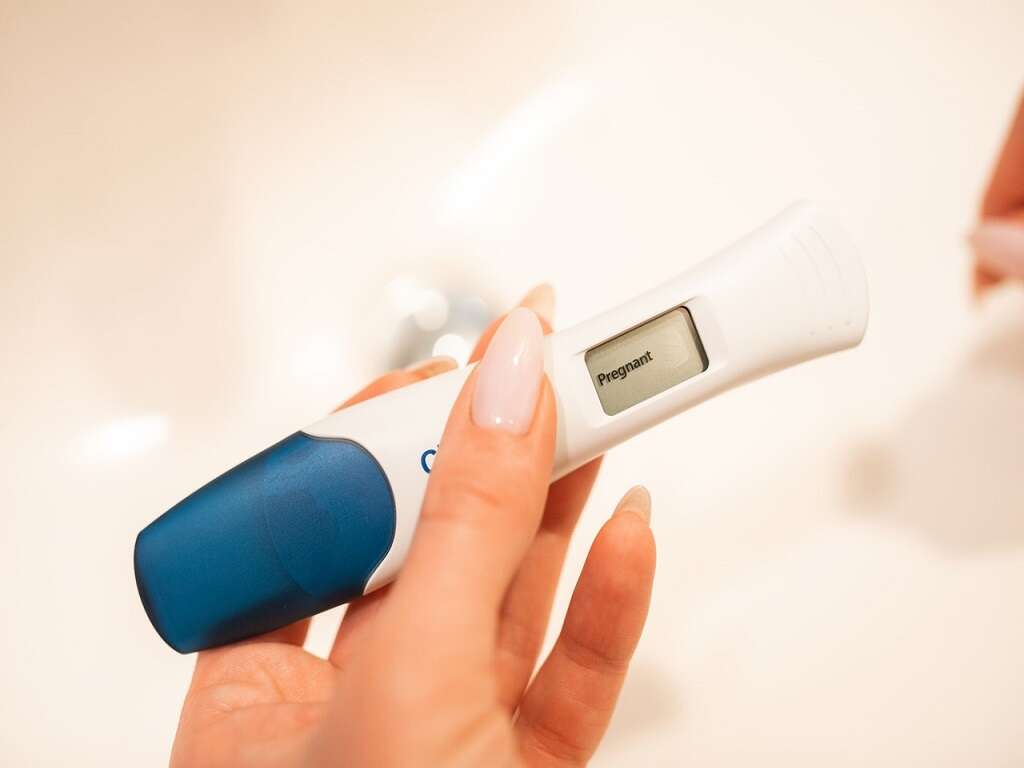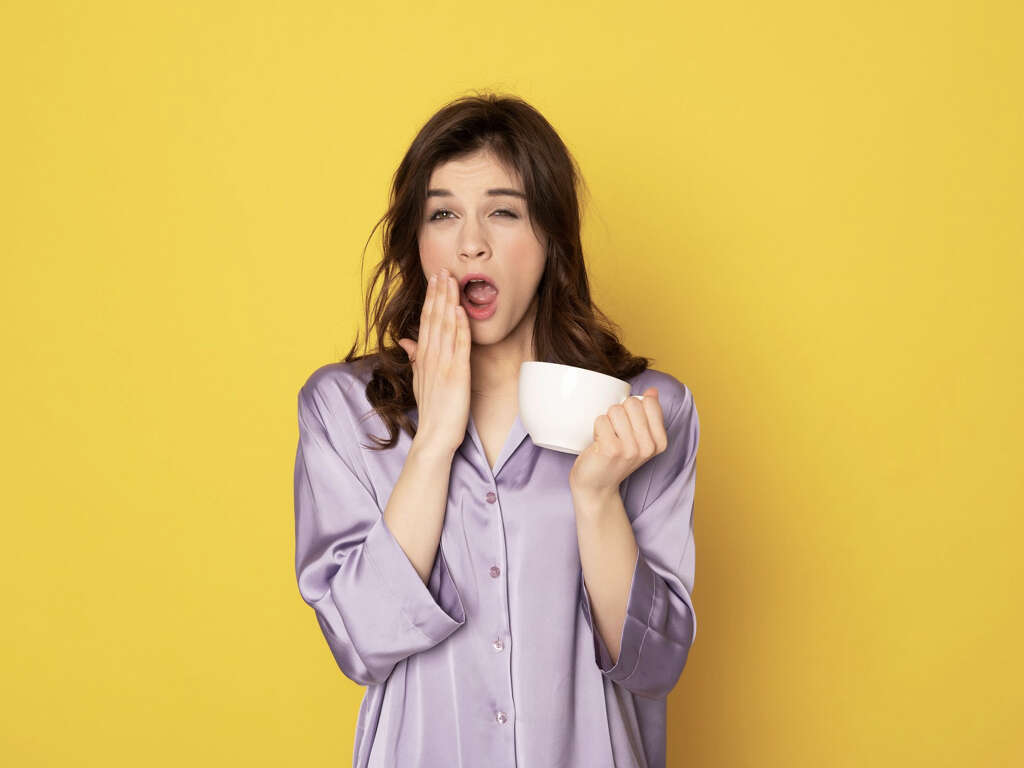10 Menopause Symptoms
Menopause occurs when there is an absence of menstruation for a duration of twelve months. It marks the end of menstrual cycles. Menopause transition begins when you notice that your menstrual cycle length starts to vary. It can happen when a woman is in her 40s or 50s. The average age for menopause in the United States is 51 years old. The general rule is that women tend to go through menopause at a similar age to that of their mothers. While it is a natural physiological process every woman goes through, you may experience some symptoms that may disrupt your daily lifestyle.
Some women experience very mild symptoms while some have severe symptoms. Menopause marks the time in a woman’s life when the ovaries no longer functions to produce eggs and therefore, the woman can no longer conceive. Besides reproductive function, the ovaries also produces hormones that not only regulates the menstrual cycle and pregnancy, but also helps in preservation of the bones.

Symptom #1: Irregular Vaginal Bleeding
In the transition to menopause, irregular vaginal bleeding may occur. While some women may experience minimal bleeding, others may have excessive and heavy bleeding. The menstrual cycle starts to vary in length such as menstruation occurs more frequently (menstrual cycle shortens) or menstruation occurs less frequently (menstrual cycle lengthens) before finally stopping.
The change in bleeding pattern will vary for each woman. It is very common for a woman to menstruate after several months of not having one. For some, the transition to menopause can take years. If you are experiencing irregular vaginal bleeding, it is important to seek your doctor’s advice to rule out other conditions such as endometrial cancer.
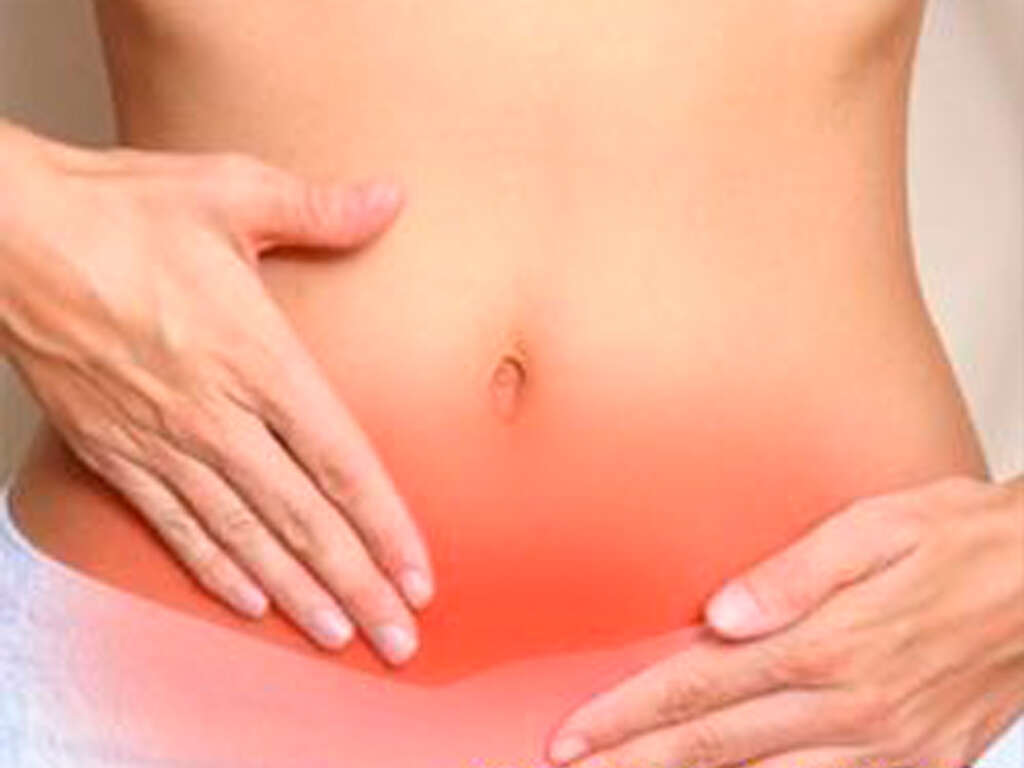
Symptom #2: Night Sweats
Night sweats describes any excessive sweating that occur during the night. However, if this happens due to temperature that is hot or if you are sleeping with too many layers, it is normal.
True night sweats occur when the surroundings are not too warm, and you sweat enough that your clothes or sheets are drenched. Night sweats can accompany other symptoms such as hot flashes. It can lead to trouble sleeping, frequent awakening, and difficulty falling asleep leading to daytime tiredness, drowsiness, and irritability.
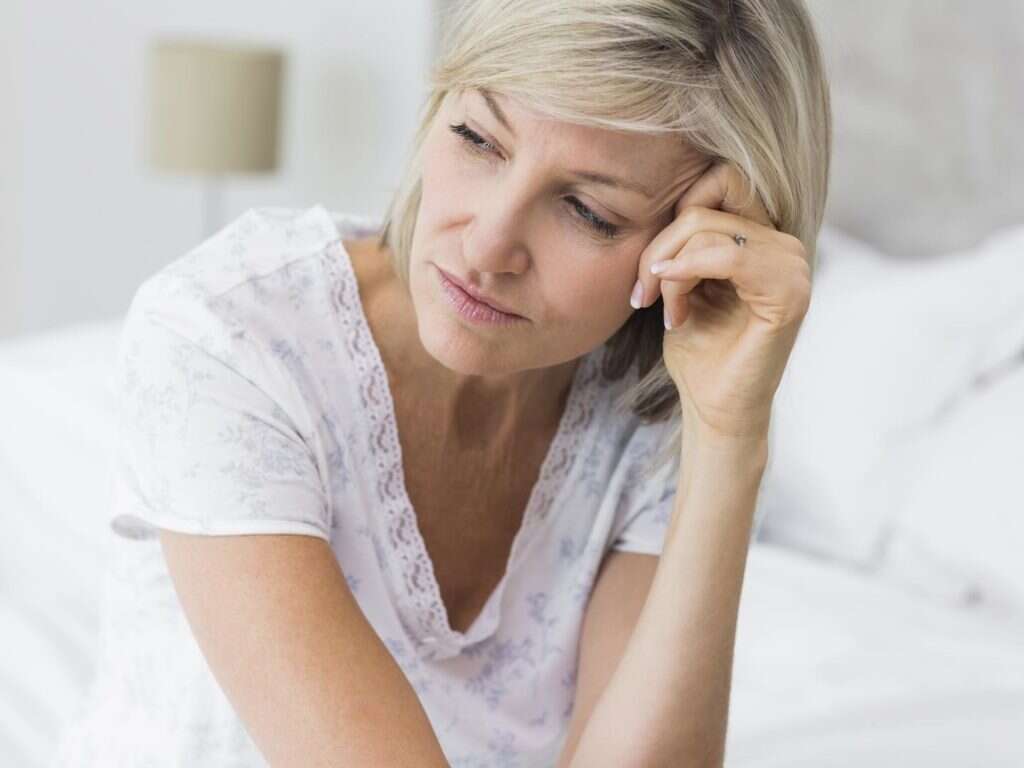
Symptom #3: Hot Flashes
Hot flashes are very common among women who are going through menopause. It describes a warm feeling that radiates throughout the body and is most distinctly felt in the head and chest. It may last several minutes and can lead to flushing and perspiration.
While the cause of hot flashes is yet to be understood, experts believe that it is due to the fluctuating levels of hormones and biochemicals that occur because of decreasing estrogen levels. Up to 40% of women in their 40s start experiencing hot flashes so it may be an earlier sign of menopause than irregular vaginal bleeding. 80% of women stop having hot flashes after 5 years while another 10% may experience it as long as 10 years. The severity of hot flashes waxes and wanes. Other symptoms such as night sweats can occur along with it.

Symptom #4: Urinary Symptoms
The urethra is the transport tube that connects the bladder to the outside and functions to discharge urine. In menopause, the lining of the urethra goes through changes causing it to become thinner, less elastic, and dry as the estrogen levels in the body decreases.
These changes increase the risk of a urinary tract infection and can cause the woman to feel the need to urinate more frequently, discomfort during micturition, and urinary incontinence (leakage of urine) when straining, coughing, sneezing, laughing, or lifting heavy objects.
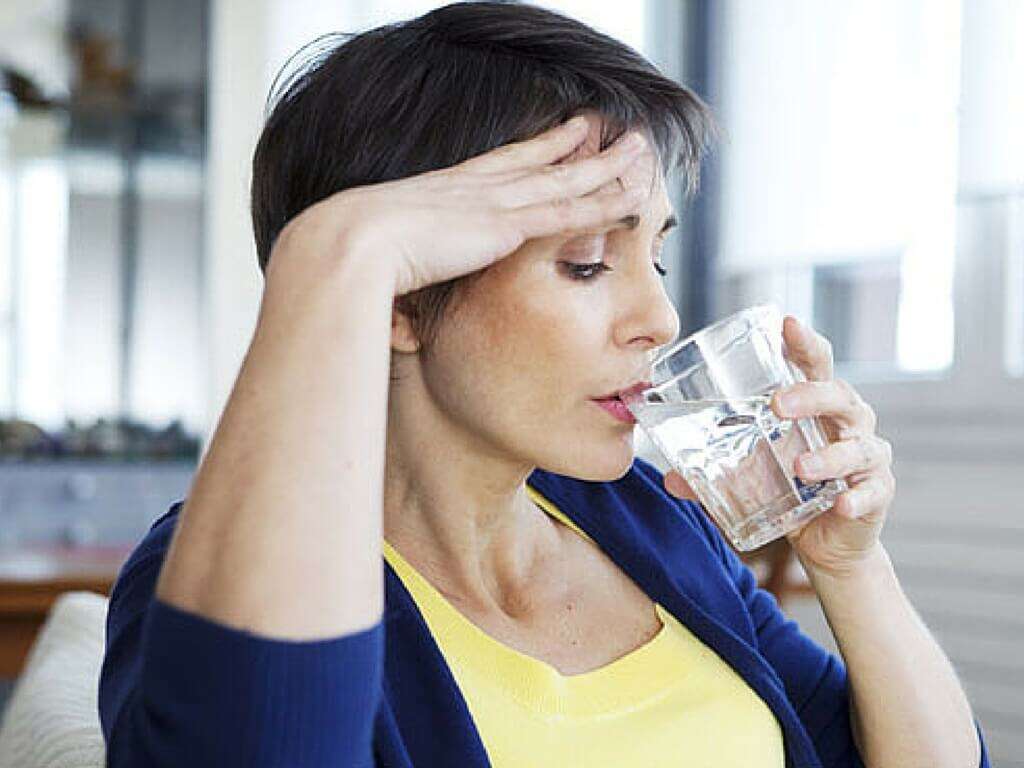
Symptom #5: Vaginal Symptoms
As the estrogen levels in the body decreases, the vaginal tissues begin to get thinner, less elastic, and drier. This can cause vaginal dryness, irritation, and itching. The vaginal dryness can cause pain during intercourse or also known as dyspareunia.
Approximately 58% pf women experience vaginal dryness after menopause. Hormone replacement therapy can be effective in resolving these issues and other symptoms of menopause but carries certain risks. For dyspareunia, vaginal lubricants can be helpful.

Symptom #6: Cognitive Symptoms
Women who are in transition to menopause often talk about a variety of cognitive related symptoms such as problems with their memory, decline in verbal learning, and fine motor skills. Research in this area has been difficult as it is hard to determine which symptoms occur due to changes of hormonal levels in menopause.
Cognitive symptoms are common making it hard to determine if the symptoms were due to menopause. Other symptoms of menopause such as night sweats and insomnia can cause the affected woman to be tired, drowsy, and irritated which may contribute to the development of cognitive symptoms.

Symptom #7: Emotional Symptoms
Women who are going through menopause often report emotional symptoms such as feelings of sadness, anxiety, lack of motivation, difficulty concentrating, aggressiveness, stress, and mood changes. It occurs due to the declining estrogen levels. If you have experienced premenstrual syndrome, this state is similar.
Some women also start exhibiting symptoms of depression. If you ever feel that you are unable to cope or simply just want someone to talk to, you should see your doctor as he or she may be able to help you by prescribing medication or recommending therapy that can help you through this rough time.

Symptom #8: Insomnia
Some women going through menopause are unable to sleep through the night due to emotions such as anxiety or depression and hot flashes that leave them drenched in sweat in the middle of the night. The declining levels of estrogen can also increase your susceptibility to stressors that can disrupt your sleep.
Women going through menopause are also at the age where they are going through major life changes such as retirement, empty nest syndrome (where their children are leaving home for education or work), and various other issues. The increased worries, anxiety, and stress can also contribute to keeping you up all night long thinking and worrying about what to do next. Try talking to your doctor or practicing better sleep hygiene.
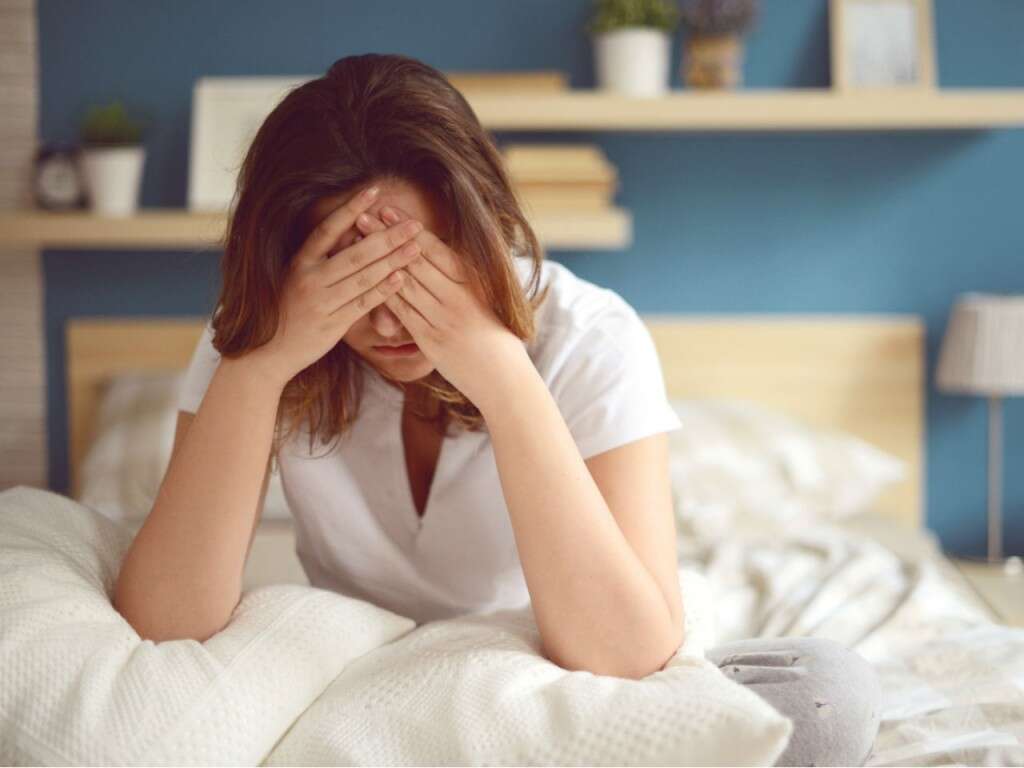
Symptom #9: Weight Gain
Most women start gaining weight with age. During the transition to menopause, there are also many women who start gaining more weight around this time. The hormonal changes contribute to weight gain among women around the abdomen, hips, and thighs. The weight gain should not be completely blamed on menopause as lifestyle and genetics also play a role in it.
With age, there is loss of muscle mass that decreases the metabolic rate leading to a higher likelihood of weight gain. Other factors contributing to menopause weight gain are lack of exercise, unhealthy diet, insufficient sleep, and more.

Symptom #10: Headaches
Hormonal headaches are caused by factors such as genetics, diet, and fluctuating hormone levels. It is often affected during pregnancy, oral contraceptives, etcetera. Women who have hormonal headaches might experience relief after menopause. However, during the transition to menopause, the headaches may become more frequent or more severe. Headaches can even occur in women who never experienced hormonal headaches.
Women with migraines have also reported that their headaches get worse during the transition to menopause. This occurs due to the decline in estrogen and progesterone hormone levels. Hormone replacement therapy or estrogen patches may be able to help with relief. talk to your doctor to discuss treatment options.





